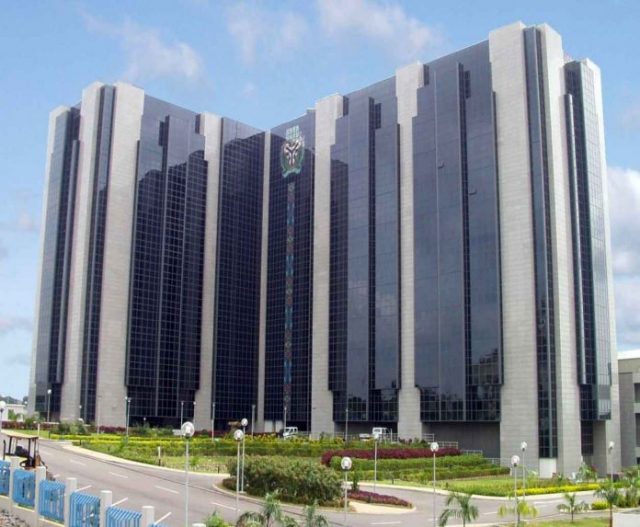There is crisis in the Nigerian Economic Summit Group (NESG) as three prominent bank Chief Executive Officers (CEOs) have resigned from the NESG Board on Wednesday.
The resignation of Kennedy Uzoka, the Group Managing Director of UBA Plc; Adesola Adeduntan, Managing Director of First Bank and Abubakar Suleiman, Managing Director of Sterling Bank Plc abruptly from the NESG board may not be unconnected with ongoing squabble between the group and Central Bank of Nigeria. Of note is the resignation of Suleiman, who runs Sterling Bank where Asue Ighodalo serves as Chairman.
The NESG, led by Asue Ighodalo, Chairman; Niyi Yusuf, Vice-Chairman; Mrs. Onyeche Tifase Vice-Chairman and Laoye Jaiyeola CEO, had on Tuesday, criticised CBN’s intervention policies, saying they are not in the interest of the economy. The group called into question some of the measures taken by the CBN to support the stability of the financial system and enable faster recovery of our economy, following the negative impact of the COVID-19 pandemic on Nigeria.
The resignation of the NESG Board in what appears to confirm the eroding credibility of the private sector-led think tank and policy advocacy group under the Jaiyeola and Ighodalo-led management. Sources close to the group said there are serious disagreements amongst members of the Board and group over the current management’s sustained and unfounded criticisms of some of the policies of the President Muhammadu Buhari-led federal government and the Godwin Emefiele-led Central Bank of Nigeria.
READ MORE: CBN, Bankers’ Committee Tackle Cybersecurity
It was further gathered that the group’s last statement on Tuesday with the caption ‘Matters of Urgent Attention’, which did not have the input of members of the Board, was what appeared to have drawn the ire of members and causing the latest uproar amongst members.
In the report , the NESG said that since the inception of this administration, agriculture and the need to ensure zero hunger for Nigerians have received considerable attention.
But the group added that despite the budgetary allocations and huge sums of money disbursed by the Central Bank of Nigeria (CBN) through the Anchor Borrowers’ Programme, a huge gap remains in meeting the food requirements, which has resulted in increasing hunger among the Nigerian populace. Evidently, the issues are beyond money and therefore, require a complete overhaul of the management of, and support for the Agriculture sector and all related sectors – with a view to getting more value for our investments. CBN Director, Corporate Communications, Isaac Okorafor, said the false alarm raised by the NESG raises serious credibility questions on the actions of the group, as its comments, which have been circulated across the globe, significantly harmed the credibility of the Governor and the CBN as an institution.
He disclosed that from the one year extension of moratorium on principal repayments for CBN intervention facilities, strengthening of the Loan to Deposit ratio policy, which has resulted in a significant rise in loans provided by financial institutions to banking customers to creation of N50 billion target credit facility for affected households and small and medium enterprises through the NIRSAL Microfinance Bank and N100 billion intervention fund in loans to pharmaceutical companies, the apex bank has taken steps to lift the economy and businesses during the COVID-19 pandemic.
“The CBN also feels compelled to let Nigerians know that in spite of the cordial and open relations between both organizations, the NESG could have raised its allegations directly with us but never did. On the CBN’s development finance activities, we are comforted by the NESG’s reluctant admission that many Central Banks around the world are also engaging in similar actions. The CBN engaged in development finance in order to address the credit needs of the sectors critical to improving livelihoods, reducing poverty, and promoting inclusive growth,” he said.
Okorafor said: “These goals have become doubly important in light of the significant shocks to the economy following the ongoing COVID-19 pandemic. In pursuit of transparency, the CBN usually publishes disbursements made under these activities in our Economic Reports.”
“Although the bourgeoises atop the NESG may not feel the impact of the Bank’s development finance activities, many ordinary Nigerians, including smallholder farmers, households, and medium-scale entrepreneurs across the country know better. As encapsulated in our most recent monthly economic report published on the Bank’s website, a total of N38.11 billion was disbursed as loans to 44,458 beneficiaries through the NIRSAL Microfinance Bank (NMFB). This number has risen to N59.12 billion; supporting to 103,189 beneficiaries as of August 2020”.
He said that in response to these unfortunate events across the globe, central banks have embarked on measures aimed at stabilizing their respective economies by reducing lending rates, which declined to negative territory in several advanced economies, in addition to increasing the scale of their asset purchase programmes.
“Indeed, after reducing its Federal Funds rate to zero per cent, the US Federal Reserve Bank implemented a huge securities purchase programme, which included purchase of corporate bonds (including those below investment grades). The Reserve Bank also provided credit facilities to non-bank institutions which included, money market funds and corporations. The balance sheet of the US Federal Reserve in support of these activities increased by over $3 trillion, while the European Central Bank expanded its balance sheet by over $1 trillion. Furthermore, the Bank of England in an unusual move gave an open check to the UK Government in order to fund its recovery efforts,” he stated.



